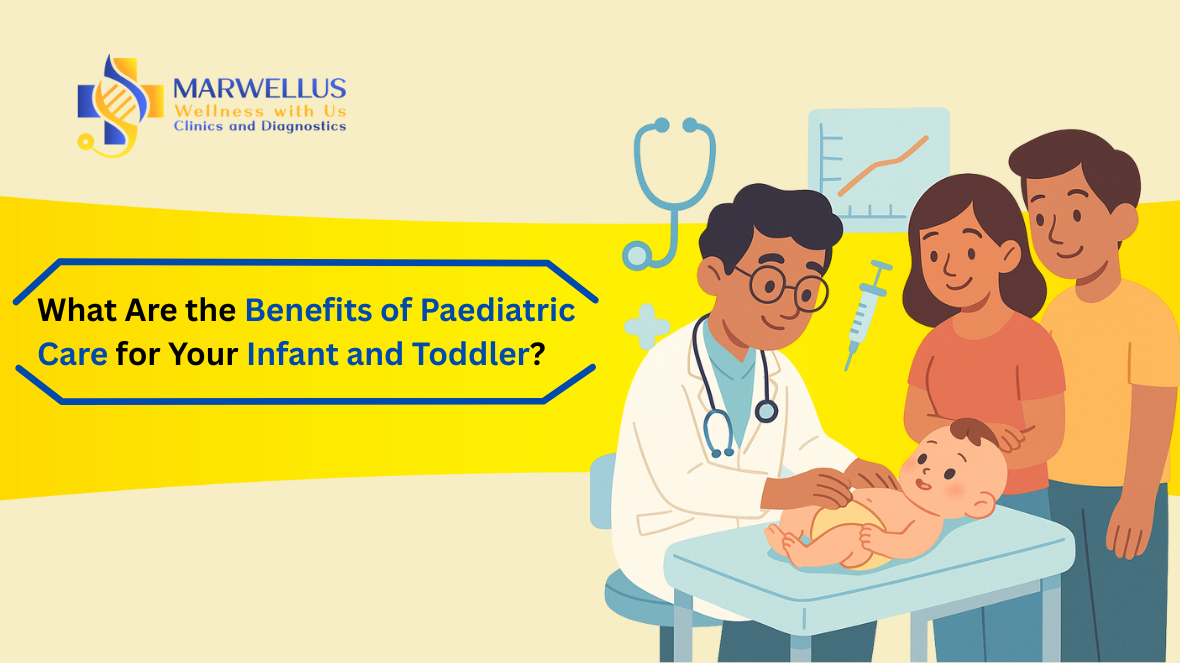



Are you ensuring that your baby’s health is on track? As a parent, one of your primary concerns is your child’s health and well-being. Paediatric care is essential for monitoring your infant or toddler’s growth, development, and overall wellness. In this blog, we will explore the benefits of paediatric care for infants and toddlers, including the importance of vaccinations, developmental monitoring, and early health screenings.
Paediatric care is crucial for your infant's health and well-being from birth through early childhood. Paediatricians are specialists in caring for young children, and they focus on monitoring and promoting healthy growth, development, and prevention of illnesses. From the moment your baby is born, their paediatrician becomes an essential partner in ensuring that they grow and develop properly.
In addition to routine check-ups, paediatric care includes several important aspects such as:
By establishing regular paediatric visits, you provide your baby with the foundation for lifelong health. Early visits can also help catch potential issues early, allowing for timely intervention and treatment.
Infants and toddlers can experience a variety of common health concerns, including:
Paediatricians play a key part in diagnosing and treating these common conditions early on, offering guidance to parents and ensuring the child’s health is closely monitored.
Vaccinations are one of the most important aspects of paediatric care. They protect infants and toddlers from serious diseases such as measles, polio, and whooping cough. Most of the vaccines mentioned in the vaccination schedule are completed within the first year of life. These include:
By following the vaccination schedule, parents ensure that their child is protected against preventable diseases, reducing the risk of serious health complications.
Paediatricians play a vital role in supporting your child’s growth and development. They track developmental milestones, ensuring your child is hitting important stages, such as:
Regular paediatric visits help address any developmental delays early, providing guidance to parents on how to encourage healthy development. With the right care and intervention, children can meet their milestones and thrive.
Your child’s first paediatric visit should happen soon after birth, typically within the first week. This early visit is crucial for checking the baby’s health and discussing feeding, sleep, and general care. Establishing a relationship with your paediatrician early on will help ensure that both the child and parents feel comfortable and supported throughout their healthcare journey.
It’s also important to schedule regular well-child visits during the first year and beyond. These visits are a great opportunity to discuss your baby’s growth, development, and any concerns you may have. For more detailed insights on the role of paediatricians in your child’s healthcare, check out our blog: The Essential Role of Paediatricians in Your Child's Health Journey.
Paediatric care is essential for the health and wellness of infants and toddlers. Regular check-ups help monitor growth, ensure developmental milestones are met, administer vital vaccinations, and identify any health concerns early. The benefits of early paediatric care are far-reaching, contributing to a lifetime of healthy development and well-being.
Ensure your child’s health is on track by scheduling an appointment with a paediatrician today. At Marwellus Clinic & Diagnostics Centre, our team of experienced professionals is dedicated to supporting your child’s growth, development, and overall wellness every step of the way. From routine check-ups to vaccinations, we are here to provide compassionate care and ensure your child’s future is bright and healthy. Book your appointment today!